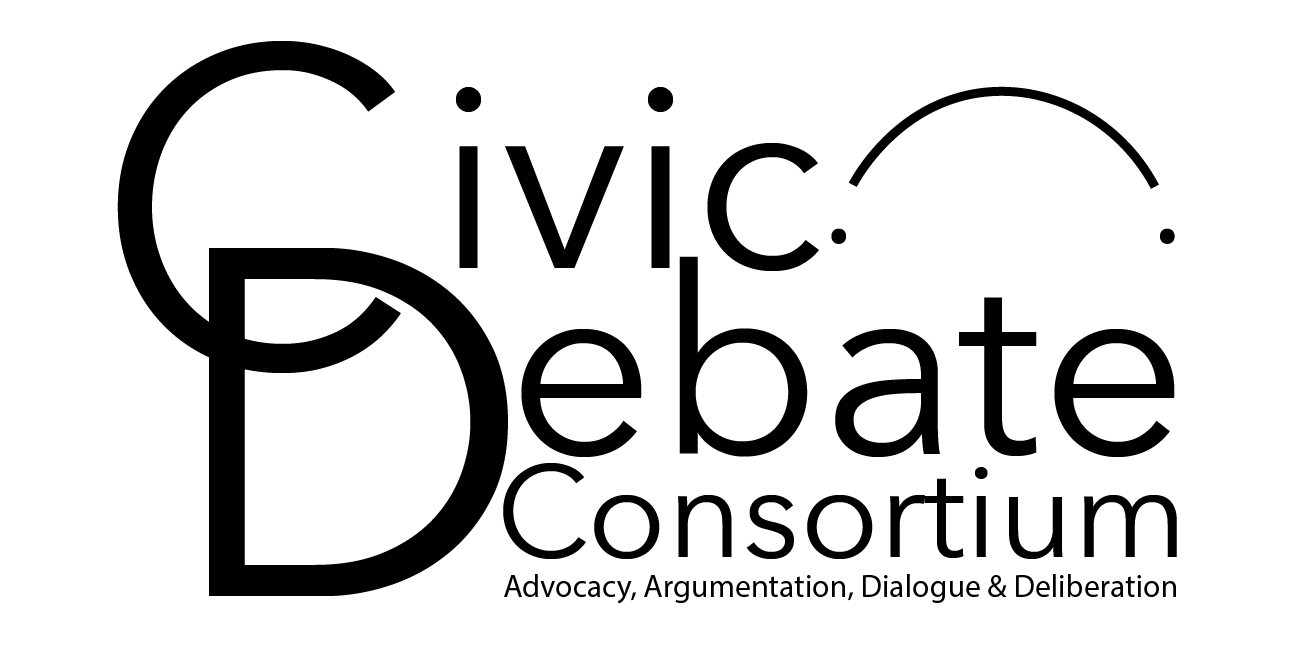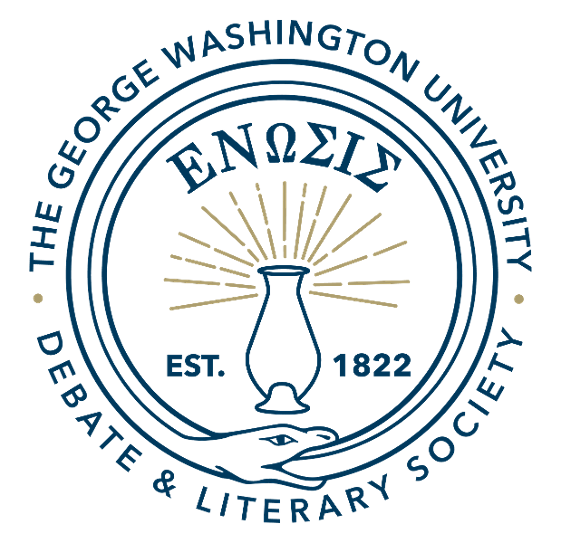TRANSATLANTIC DIALOGUES
2025
Founded by École de Guerre and The George Washington University, Transatlantic Dialogues for Future Leaders is an annual intercollegiate dialogue series bringing together US and European university students to analyze and discuss important transatlantic topics. During the 2024 series, students developed and defended strategies for Western liberal democracies to enhance military recruitment, readiness, and preparedness in response to emerging forms of warfare.
For more information, visit the 2024 webpage on this website
SCHEDULE
MARCH 1
DENVER, MSU DENVER
Which institutions, public or private, should hold primary responsibility in preparing people to be on the lookout for misinformation and disinformation?
MARCH 3 - MARCH 31
GEORGE WASHINGTON UNIVERSITY (ONLINE SESSION)
JUNE 19 - JUNE 20
PARIS, FRANCE, ÉCOLE DE GUERRE (EDG)
See the detailed schedule in the “Ecole de Guerre” section below.
How can Western democracies effectively counter misinformation and disinformation without putting democratic institutions and values at risk?
What are the most important challenges or disadvantages faced by Western democracies in constructing resilience to misinformation and disinformation?
FORMAT
Team A Present & Defend
Team A presents position — 6 minutes 3 Questions, Statements and/or Arguments from Team B. Each question or argument from Team B should be no longer than 30 seconds. Each response from Team A should be no longer than 90 seconds. Teams should use a running clock and cease speaking immediately upon the expiration of their allotted time.
Statement by Team B on Team A’s presentation - 6 minutes
Questions from Judging Panel to Team A - 6 minutes
Concluding statement from Team A - 3 minutes
5 Minute break
TO WATCH THE DEBATE:
FORMAT
Team B Present & Defend
Team B presents position — 6 minutes 3 Questions, Statements and/or Arguments from Team B. Each question or argument from Team A should be no longer than 30 seconds. Each answer from Team B should be no longer than 90 seconds. Teams should use a running clock and cease speaking immediately upon the expiration of their allotted time.
Statement by Team A on Team B’s presentation - 6 minutes
Questions from the Judging Panel to Team B - 6 minutes
Concluding statement from Team B - 3 minutes
The Transatlantic Dialogues use a “collaborative debate” format. Teams are not assigned to defend particular perspectives on a topic. Instead, teams choose their positions and are judged based on the quality of their presentations, arguments, scholarship, and value of their contribution to Transatlantic dialogue around the topic area. In other words, teams ought to seek to present and defend their positions, productively engaging and critiquing their opponents' positions, for the benefit of an audience of Transatlantic security and military stakeholders seeking to determine the best possible policy proposal.
All speech time is “shared time.” This means the team may share the time between their team members and alternate speaking as they see fit. Judges are encouraged, however, to prefer balanced team presentations rather than presentations in which a single team member dominates the allotted speech time.
GENERAL GUIDELINES
During each leg of the Transatlantic Dialogues (Denver, DC, Paris), each team must present a case responding to the guiding question/topic/motion for that leg only. The debaters DO NOT have to answer all three at once.
The first guiding question "Which institutions, public or private, should hold primary responsibility in preparing people to be on the lookout for misinformation and disinformation?", will be used during the Denver Transatlantic Dialogue on March 1st.
The second guiding question, "What are the most important challenges or disadvantages faced by Western democracies in constructing resilience to misinformation and disinformation?", will be used during the Washington DC Transatlantic Dialogue (online session) in March.
The third guiding question, "How can Western democracies effectively counter misinformation and disinformation without putting democratic institutions and values at risk?", will be used during the Paris Transatlantic Dialogue on June 20th.
6 minutes / 3 questions in the Present-and-Defend format = those questions ARE NOT the guiding questions. These are questions of the other team's choosing that are intended to clarify vague points in the presented case and/or search for gaps in their metaphorical arguments, weak points which can then be highlighted in the response.
You will find below the adapted format for the online session in the “George Washington University” section.
Regarding whether or not the debaters are expected to present a policy proposal, the debaters need to be offering at least a basic policy proposal at the Denver event, (whether it should be the public or private sector that is chosen, which specific institutions within that sector might be chosen for such a task, what those institutions might do and how might they enforce and fund that, what unique benefits or issues does this policy entail, etc.).
Obviously, as the first topic is the vaguest of the three and this might well be the first time that some of the debaters are writing a policy proposal, it can be on the vaguer side. However, it is important to begin making sure that the debaters are developing their ability to address all of the planks in a plan text (mandate, administration, enforcement, funding, spikes) and all of the stock issues (harms, significance, inherency, feasibility, solvency, advantages and disadvantages, alternatives) so that they can further refine those skills as increasingly in-depth and rigorous policy proposals are expected of them in the second and third legs of the Dialogues.
Metropolitan State University of Denver
01/03/2025
For the first tournament in the 2025 series, to be held at Metropolitan State University of Denver, students will present and defend policy proposals addressing the critical question: “Which institutions, public or private, should hold primary responsibility in preparing people to be on the lookout for misinformation and disinformation?”
Click here to access the reading list.
MSU Denver is a leader in social mobility, offering an accessible, high-quality education. As Colorado’s top transfer destination, MSU Denver prepares students for successful careers, post-graduate education, and lifelong learning. The university emphasizes real-world experience and equips students with the skills needed to thrive in a multicultural, global society. MSU Denver fosters equity and engages students in their communities and workforce from day one, empowering them to make an immediate impact. With diverse academic programs, MSU Denver ensures its graduates are ready to succeed in a rapidly evolving world.
George Washington University
For the second tournament in the 2025 series, to be held online, students will present and defend policy proposals on the topic: “What will be the most important challenges or disadvantages faced by Western democracies in constructing resilience to misinformation and disinformation?”
The event will be divided into two sessions:
1. Workshop Session (March 3rd - March 20th)
This 2-hour workshop will give each team the opportunity to review their case with their mentor and prepare for their presentation. You should have received an Excel sheet with the name and contact details of your assigned mentor. The Excel sheet is based on the participation to the MSU Denver Event. You are requested to reach out to your mentor directly to schedule your meeting.
2. Official Presentation Session (March 20th - March 31st)
During this session, each team will present their policy proposals to a judge (who is not their assigned mentor) and receive feedback for the next steps of the Transatlantic Dialogues. Since this is an online event, only one team will present to one judge at a time. The presentation format will follow this structure:
Team Presentation: 6 minutes
Judge’s Questions: 6 minutes
Concluding Statement from the Team: 6 minutes
Final Questions from the Judge: 6 minutes
Feedback and Advice: 30 minutes
In the Excel sheet, you will find the name and contact information of your assigned judge. Please contact them directly to arrange your presentation session.
École de Guerre
06/20/2025
For the third and final tournament in the 2025 series, to be held at École de Guerre in Paris, students will present and defend policy proposals on the topic: “How can Western democracies effectively counter misinformation and disinformation without putting democratic institutions and values at risk?”
Event Outline:
Thursday June 19th in the afternoon: cultural activity on the theme of freedom of speech, freedom of press, access to the truthful information and the danger of disinformation.
Friday June 20th from 8.30 AM to 6 PM: Transatlantic Dialogues
Weekend in Paris!
More to come…
Team Registration: Please note that we can accommodate a maximum of 12 teams for the event.
École de Guerre in Paris trains military leaders for senior command roles, blending strategic theory with practical experience. Its curriculum focuses on military strategy, leadership, and modern warfare, preparing officers to navigate complex global security challenges. Students engage in rigorous academic study, simulations, and direct exposure to high-level decision-makers. With its unique position within France’s defense structure, the École de Guerre equips graduates to lead with vision and impact military strategy and international cooperation.










